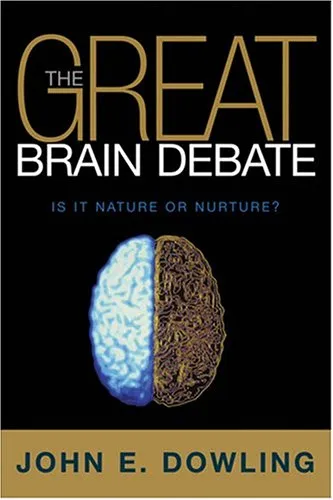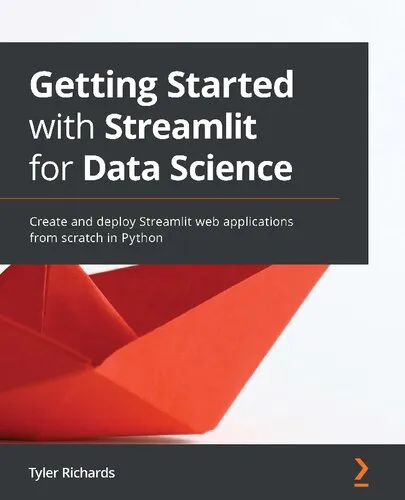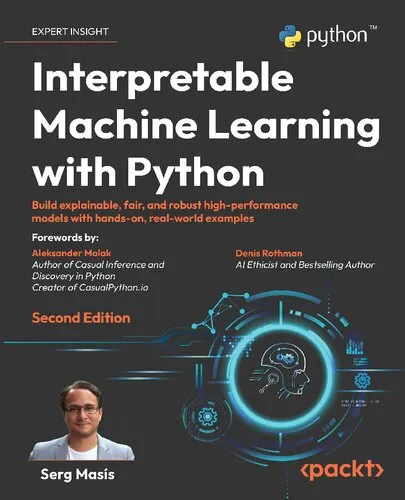The Great Brain Debate: Nature Or Nuture?
4.5
Reviews from our users

You Can Ask your questions from this book's AI after Login
Each download or ask from book AI costs 2 points. To earn more free points, please visit the Points Guide Page and complete some valuable actions.Related Refrences:
Introduction to "The Great Brain Debate: Nature or Nurture"
"The Great Brain Debate: Nature or Nurture" dives headfirst into one of the most enduring and controversial debates in the world of neuroscience, psychology, and human development. At its core, the book explores the enigmatic nature of human intelligence, personality, and behavior, and examines whether these attributes are primarily the result of innate biological factors (nature) or the environment in which one is raised (nurture).
As science continues to advance, the lines between nature and nurture have blurred, revealing surprising interactions between genetics and experience. In this book, we delve into current research, historical insights, and expert opinions to unravel the complex dynamics shaping who we are. From the implications of groundbreaking twin studies to the influence of epigenetics and early childhood experiences, no aspect of this debate is left unexplored. Whether you are a student, a scientist, or simply a curious reader, this book aims to provide profound insights into the forces that shape human potential and individuality.
Detailed Summary of the Book
The book is structured to address the fundamental questions that have surrounded the nature versus nurture debate for centuries. It begins by providing historical context, highlighting the opinions of early philosophers like John Locke, who argued for the importance of experience, and nativists like Plato, who favored innate knowledge.
The discussion then shifts to the role of genetics in shaping human behavior, referring to landmark studies such as the Human Genome Project and monozygotic twin research. We also explore how complex traits like intelligence, aggression, empathy, and resilience are studied within the realm of psychology and neuroscience. Alongside these genetic aspects, the environmental influences of culture, socioeconomic factors, education, parenting, and early childhood experiences are weighed carefully.
Another critical aspect the book discusses is the emergence of epigenetics—how external factors influence the expression of genes—and the concept of brain plasticity, which underscores the dynamic interplay between nature and nurture. By illustrating how experiences sculpt the brain over time, the book emphasizes human adaptability and learning potential.
Throughout the chapters, the reader is invited to think critically rather than choose sides. The book proposes that nature and nurture are not mutually exclusive, but rather two interdependent forces contributing to the complexity of the human mind.
Key Takeaways
- The human brain is shaped by a nuanced interplay of genetic predispositions and environmental factors.
- No single factor determines who we are; it is a confluence of genes, environment, and personal choices.
- Modern research, especially in epigenetics and brain plasticity, highlights how dynamic and adaptable the human brain truly is.
- Understanding the nature versus nurture debate has profound implications for education, mental health, and public policy.
- Rather than focusing on "nature vs. nurture," the conversation should shift toward understanding how nature and nurture work together.
Famous Quotes from the Book
- “Genes may lay the groundwork, but the environment paves the way forward.”
- “To focus solely on nature is to neglect nurture's profound impact on the mind, and to overemphasize nurture is to disregard the subtle blueprint of our DNA.”
- “Every synapse in our brain tells a story—a story written not only by biology but also by the lives we lead and the choices we make.”
- “The human brain is neither a blank slate nor an immutable program; it is a living, breathing interplay of genes and experience.”
Why This Book Matters
Understanding the intricate relationship between nature and nurture is not just an academic exercise—it has far-reaching implications for society at large. By exploring this age-old debate, "The Great Brain Debate: Nature or Nurture" helps us better comprehend human behavior and development, which can revolutionize how we approach many essential areas of life.
For educators, the book offers critical insights into learning and cognition, emphasizing the importance of tailored educational practices that honor both a student’s potential and the contexts they inhabit. For parents, the book sheds light on the enormous impact of early caregiving and environment on a child’s future. For policymakers, it provides scientific validation for evidence-based decisions in health care, juvenile justice, and social services.
Most importantly, this book reminds us that human potential is not fixed. It is shaped, refined, and reimagined over the course of a lifetime. By embracing the interconnected roles of nature and nurture, we not only arrive at a more comprehensive understanding of the brain, but also unlock new pathways toward personal growth, equity, and innovation.
Whether you're curious about how genes and environment interact, or passionate about societal progress, "The Great Brain Debate" offers valuable insights for navigating one of the most compelling topics of our time.
Free Direct Download
You Can Download this book after Login
Accessing books through legal platforms and public libraries not only supports the rights of authors and publishers but also contributes to the sustainability of reading culture. Before downloading, please take a moment to consider these options.
Find this book on other platforms:
WorldCat helps you find books in libraries worldwide.
See ratings, reviews, and discussions on Goodreads.
Find and buy rare or used books on AbeBooks.
1138
بازدید4.5
امتیاز0
نظر98%
رضایتReviews:
4.5
Based on 0 users review
Questions & Answers
Ask questions about this book or help others by answering
No questions yet. Be the first to ask!





![The Ultimate iOS Interview Playbook: Conquer Swift, frameworks, design patterns, and app architecture [Team-IRA]](https://s3.refhub.ir/images/thumb/The_Ultimate_iOS_Interview_Playbook__Conquer__29925.webp)







